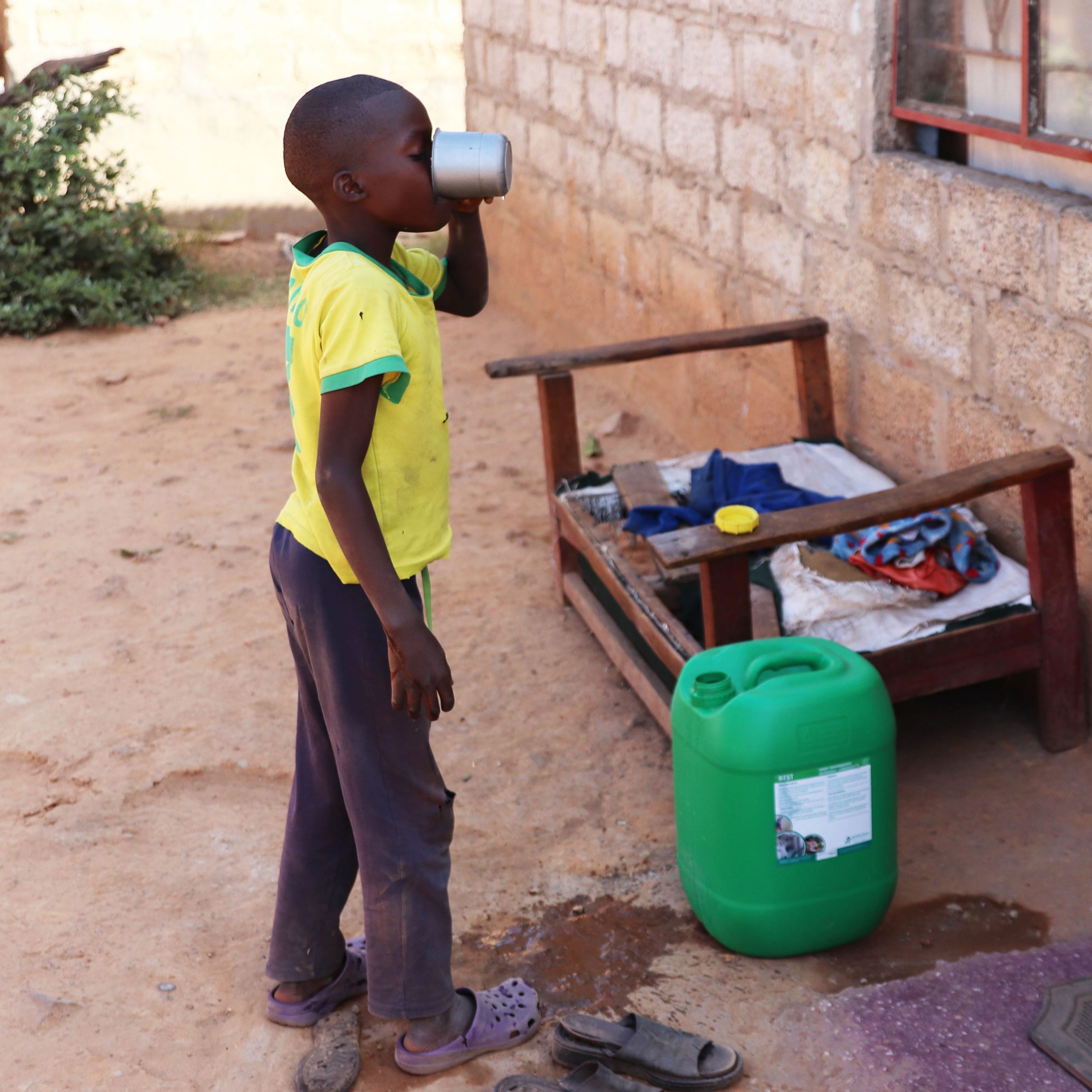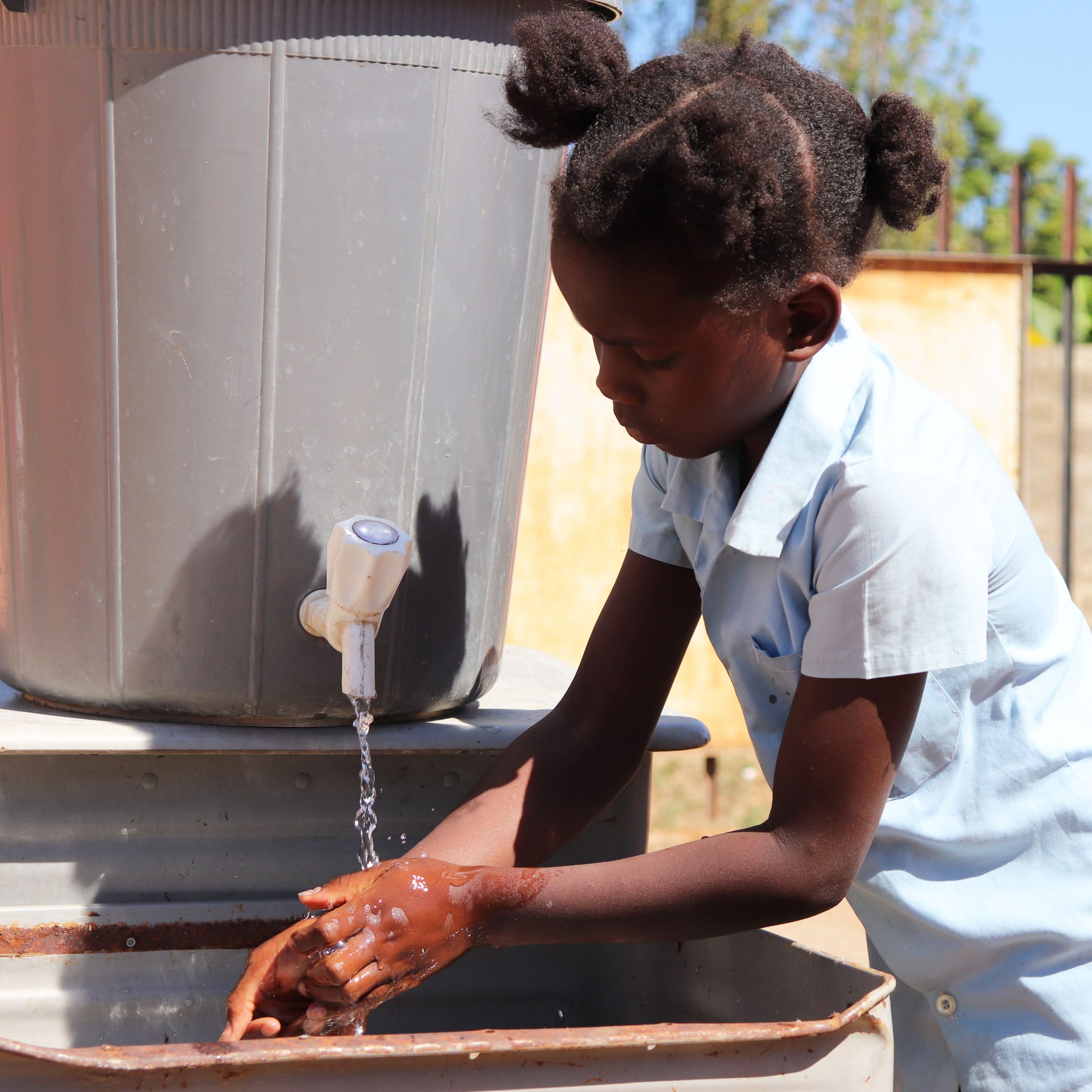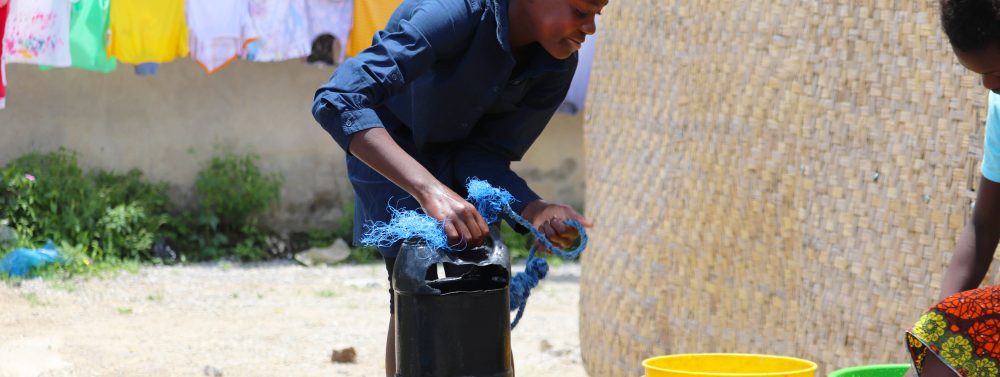Pictured above: Martha, an African Vision of Hope student, draws water from a well in her village.
The most vital ways to prevent the spread of COVID-19 are to wash your hands and keep a social distance, but what happens when you don’t have access to soap and water and live in slum-like conditions?

Martha, an African Vision of Hope grade 5 student, lives with her family of seven in a one-room home with no running water or electricity. Like Martha, many Zambians live in compounds where their homes, made of mud and corrugated metal, are squished together in close proximity. Many of our students and staff are worried that if the virus spreads to their villages they won’t be able to stop it.
“If one of my family members were to become infected, there is no way for us to isolate them. We have no rooms in our home.” – Martha
(Pictured, Martha’s younger brother taking a drink from their water jug in front of their home)

Many families cannot afford soap, so they wash their hands, and bodies, with a bucket of water. When access to water is limited, all washing is forgone to conserve water for cooking and drinking. Their only way to get water is by a communal well shared by hundreds of other villagers.
(Pictured, a hand washing station at African Vision of Hope School in Kabulonga)
So, what can you do to help?
Even though schools are closed until late April in an effort to slow the spread of COVID-19, students, and any child in need, has access to a nutritious lunch and sanitation facilities such as hand washing stations. African Vision of Hope students will also have access to the school nurse. Your gifts make this possible. Thank you for continuing to walk with us and for looking out for “the least of these.”
[button style=”btn-primary btn-lg” type=”link” target=”false” title=”give now” link=”/giving/use-where-needed-most/” linkrel=””]


